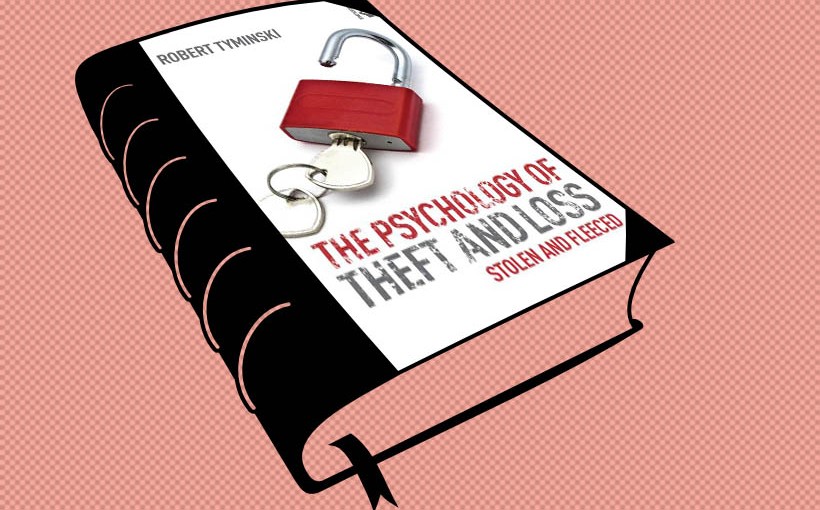- Publisher: Routledge (June 26, 2014)
- Language: English
- ISBN-10: 0415830893
- ISBN-13: 978-0415830898
Why do we steal?
This question has confounded everyone from parents to judges, teachers to psychologists, economists to more than a few moral thinkers. Stealing can be a result of deprivation, of envy, or of a desire for power and influence. An act of theft can also bring forth someone’s hidden traits – paradoxically proving beneficial to their personal development.
Robert Tyminski explores the many dimensions of stealing, and in particular how they relate to a subtle balance of loss versus gain that operates in all of us. Our natural aversion to loss can lead to extreme actions as a means to acquire what we may not be able to obtain through time, work or money. Tyminski uses the myth of Jason, Medea and the Golden Fleece to explore the dilemmas involved in such situations and demonstrate the timelessness of theft as fundamentally human. The Psychology of Theft and Loss incorporates Jungian and psychoanalytic theories as well as more recent cognitive research findings to deepen our appreciation for the complexity of human motivations when it comes to stealing, culminating in consideration of the idea of a perpetually present ‘inner thief’.
Combining case studies, Jungian theory and analysis of many different types of stealing including robbery, kidnapping, plagiarism and technotheft, The Psychology of Theft and Loss is a fascinating study which will appeal to psychoanalysts, psychologists, psychiatrists, social workers, family therapists and students.
See „The Psychology of Theft and Loss” at Routledge
Robert Tyminski, MD
Robert Tyminski is in private practice in San Francisco where he maintains a general psychotherapy and Jungian analytic practice. He works with adults dealing with career change, creative obstacles, work stress, and major life transitions. He is a certified adult and child Jungian psychoanalyst.
Dr. Tyminski has a doctoral degree in mental health from the University of California at San Francisco. He continues to teach there in the Department of Psychiatry. He has an M.B.A. degree from the Haas School of Business at UC Berkeley where he concentrated on the management of non-profit organizations. Dr. Tyminski has taught numerous graduate students since 1986 with a focus on human development and relationships. He is licensed as a psychologist in California.
Recent publications by Dr. Tyminski include: „Lost for words: difficulty expressing feelings in work with three adolescent boys” (Journal of Child Psychotherapy), “Medea, Jason, and their illusions of the Golden Fleece: a Jungian contribution to transference dreaming” (International Journal of Jungian Studies), “Fleeced: A perspective from antiquity on contemporary addictions” (Jung Journal: Culture and Psyche), “The impact of group psychotherapy on social development in children with pervasive developmental disorders” (International Journal of Group Psychotherapy), & “The week the couch arrived” (Journal of Analytical Psychology).
Read more about Robert Tyminski
e-jungian.com is not financed by any external fund except of free of charge administration and webmastering of e-maginalis.com.
e-jungian.com participates in Amazon Services LLC Associates Program, which is our way to keep the website clean and free of advertisements. It means that every time a book is bought it supports the development of the website. We advertise only analytical psychology and Jungian psychoanalysis books. If you like the direction our website is expanding you might consider supporting it by buying Jungian books via sponsored links of our Amazon Associaties Program.
Tags: Robert Tyminski



































